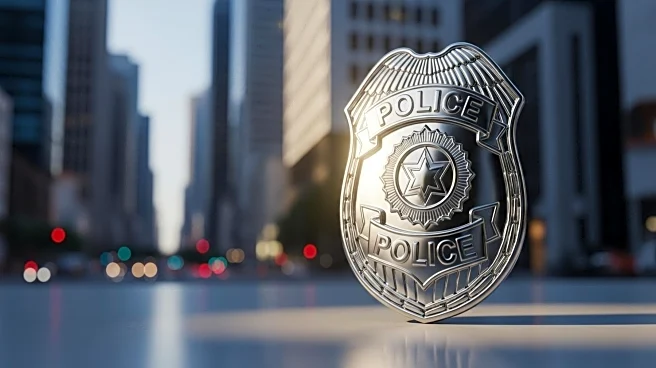What's Happening?
President Trump has declared a crime emergency in Washington, D.C., leading to a significant increase in federal law enforcement presence in the city. This initiative has resulted in a noticeable decline in crime rates, surpassing the improvements already observed earlier in the year. However, this aggressive approach has also led to a reduction in normal city activities. Tourist numbers at popular locations near the Capitol have decreased, and local activities such as a nighttime soccer league and a weekly food pantry have seen reduced participation. Additionally, there has been a decline in sidewalk traffic and bike-share usage in neighborhoods like Columbia Heights. While public transit ridership remains stable, the overall social and cultural vibrancy of the city has been muted due to the heightened security measures.
Why It's Important?
The crime crackdown in Washington, D.C., highlights the complex balance between enhancing public safety and maintaining the vibrancy of urban life. While the reduction in crime is a positive outcome, the broader impact on the city's social and economic activities raises concerns. Businesses, particularly those reliant on tourism and local patronage, may face economic challenges due to decreased foot traffic. The muted social life could also affect the city's cultural and community dynamics, potentially leading to long-term shifts in how residents and visitors engage with the city. This situation underscores the need for policies that effectively address crime without stifling the everyday life and economic vitality of urban areas.
What's Next?
As the federal law enforcement presence continues, city officials and community leaders may need to assess the long-term implications of the crime crackdown. There could be discussions on finding a balance between maintaining public safety and ensuring the city's social and economic activities are not unduly hampered. Stakeholders, including local businesses, residents, and policymakers, might explore strategies to revitalize the city's vibrancy while keeping crime rates low. The outcome of these discussions could influence future approaches to crime prevention in urban settings.
Beyond the Headlines
The situation in Washington, D.C., raises ethical and cultural questions about the impact of heavy law enforcement on community life. The presence of federal agents and National Guard troops may create an atmosphere of tension and unease among residents, particularly in immigrant communities. This could lead to a sense of alienation and distrust towards authorities, affecting community relations and social cohesion. The long-term cultural implications of such measures warrant careful consideration to ensure that security efforts do not undermine the inclusive and diverse character of the city.








